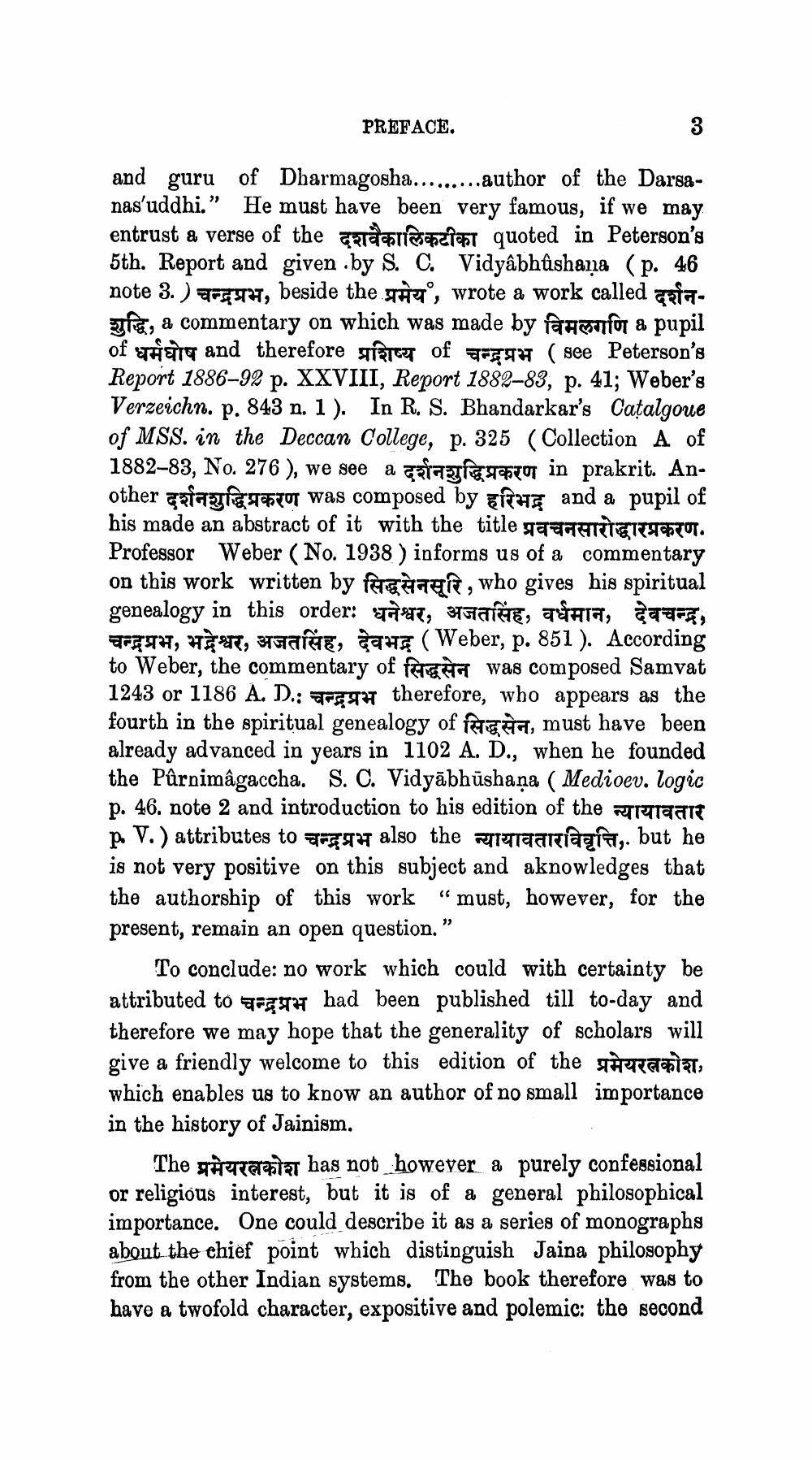________________
PREFACE.
and guru of Dharmagosha..........author of the Darsanas'uddhi.” He must have been very famous, if we may entrust a verse of the gardens citat quoted in Peterson's 5th. Report and given .by S. C. Vidyâbhâshana (p. 46 note 3.) चन्द्रप्रभ, beside the प्रमेय', wrote a work called दर्शनशुद्धि, a commentary on which was made by विमलगणि a pupil of धर्मघोष and therefore प्रशिष्य of चन्द्रप्रभ (see Peterson's Report 1886–92 p. XXVIII, Report 1882–83, p. 41; Weber's Verzeichn. p. 843 n. 1). In R. S. Bhandarkar's Catalgoue of MSS. in the Deccan College, p. 325 (Collection A of 1882–83, No. 276 ), we see a cafe Taktor in prakrit. Another दर्शनशुद्धिप्रकरण was composed by हरिभद्र and a pupil of his made an abstract of it with the title प्रवचनसारोद्धारप्रकरण. Professor Weber ( No. 1938 ) informs us of a commentary on this work written by AghaRT , who gives his spiritual genealogy in this order: TT, TETATE, SA, que, 1998, 19, Fath, ah (Weber, p. 851). According to Weber, the commentary of the was composed Samvat 1243 or 1186 A. D.: FETH therefore, who appears as the fourth in the spiritual genealogy of Agha, must have been already advanced in years in 1102 A. D., when he founded the Pârnimâgaccha. S. C. Vidyābhūshaņa ( Medioev. logic P. 46. note 2 and introduction to his edition of the irraart pV.) attributes to चन्द्रप्रभ also the न्यायावतारविवृत्ति,. but he is not very positive on this subject and aknowledges that the authorship of this work “must, however, for the present, remain an open question."
To conclude: no work which could with certainty be attributed to 9 had been published till to-day and therefore we may hope that the generality of scholars will give a friendly welcome to this edition of the प्रमेयरत्नकोश, which enables us to know an author of no small importance in the history of Jainism.
The ghearelat has not however a purely confessional or religious interest, but it is of a general philosophical importance. One could describe it as a series of monographs about the chief point which distinguish Jaina philosophy from the other Indian systems. The book therefore was to have a twofold character, expositive and polemic: the second




